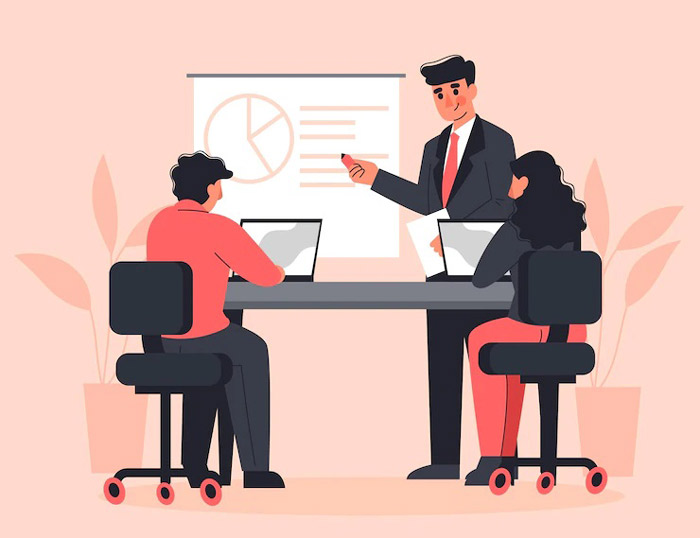At the group and centre meetings, members are offered support services such as skill training, environment awareness and entrepreneurship development to ensure the success of the potential small and medium entrepreneurs.
Islami Bank Bangladesh Limited is a global pioneer and world’s largest operator of Islamic microfinance. RDS microfinance byThe Bank has been transforming million of rural poors to successful entrepreneurs since its establishment in 1995. Currently enrolling 1.52 million members across 30 thousand villages of Bangladesh under financial inclusion. The scheme operates with an integrated development approach with typical collateral free micro investment and compulsory savings supported by entrepreneur development activities plus ward stipends, sanitation aid, medical camps, profit-free loans, rehabilitations and plantations. The graduated clients successfully utilizing the micro investment slabs can avail larger investments under micro enterprise scheme. A 98% plus rate of recovery in the project demonstrates remarkable impact in poverty alleviation. Another salient feature being 92% majority of the beneficiaries are women which gears up the women empowerment practice in the rural settings. The successful project by the bank has been replicated for the urban poors since 2012.
322 branch, 27 sub-branch, 175 agent outlets
490 (out of 492)
29,468
36,816
1,524,035
832,758
Tk. 395.41 mn
Tk. 48,260 mn
Tk. 14,380 mn
3,708
Field officers from the bank conducts field visits to potential areas and selects villages with the following criteria: 1) Within a radius of 10 km from bank premise, 2) availability of agriculture and non-agriculture activities and 3) high percentage of low-income people.
Upon availability of at least 400 target group people in the selected areas, the concerned branch proceeds for MF operation. Groups consisting of 5 members each (living in the same village) are formed. A centre is formed with 2-8 groups. The group leaders appoint the centre leader and deputy leader from among themselves to facilitate centre activities.
Members have to open a Mudaraba savings account and are required to deposit Tk. 50 per week. Besides, they deposit Tk. 5 per week to Qard-e Hasan fund which extends non-profit loans.
A centre meeting on weekly basis is conducted by the bank’s field officers what all groups must attend. The meetings uphold moral values, social rights and responsibilities of investment repayment; collection of investment installments, personal savings and centre funds; and review and approve investment proposals.
Investment financing starts after 8 weeks of positive observation for a member. Investment is allowed without collateral and functions on group guarantee mechanism. Personal guarantee from every member of one’s group is required and the members are jointly and severally liable and responsible for repayment of the investment.
The initial investments start around Tk. 10,000 and based on good repayment, it increase by Tk. 5,000 or multiple in every succeeding term depending on the sector of investment. The rate of return (based on profit and loss method) is at 12.5 percent, however timely repayment is rewarded by a 2.5 percent rebate, thus a successful member will pay 10 percent profit to the bank. This rate of return is lower than any rate offered by conventional MFIs in Bangladesh.
Investment Ceiling:
Eligibility for RDS clients
The Bank has introduced Micro Enterprise Investment Scheme in 2005 for the graduated micro-investment clients
Eligibility:
Investment Limit:
Tk.100,000/- to 7,00,000/-
At the group and centre meetings, members are offered support services such as skill training, environment awareness and entrepreneurship development to ensure the success of the potential small and medium entrepreneurs.

Qard-e Hasan fund, an interest-free fund given to the extreme poors, for members who are not able to make their timely payments or toward the rural development of the community (building and installing latrines, tube wells etc). The receiver of the Qard-e Hasan is only liable for the repayment of the principal amount. This innovative approach encourages the act of giving and ensures that the extreme poors are included in the program in order for them to become self-reliant and productive in the community.
Different non-financial welfare services Education, Health, Training, Rehabilitation & Environment have been extended under the program.
| Sl. | Sector | Expenditure (million Tk.) | Beneficiary | ||
|
Cumulative (2012-21) |
2021 |
Cumulative (2012-21) |
2021 | ||
| 1 | Education Program | 754.38 | 44.77 | 424,976 | 20,156 |
| 2 | Training Program | 149.07 | 0.17 | 1,032,329 | 1,466 |
| 3 | Health Program | 291.79 | 26.77 | 338,169 | 20,604 |
| 4 | Relief & Rehabilitation | 401.49 | 81.11 | 97,376 | 4,978 |
| 5 | Environment Program | 221.69 | 6.93 | 8,312,924 | 1,17,407 |
| Grand Total | 1,818.42 | 159.75 | 10,205,774 | 1,64,611 | |
LinkedIn
Youtube
Twitter
Twitter